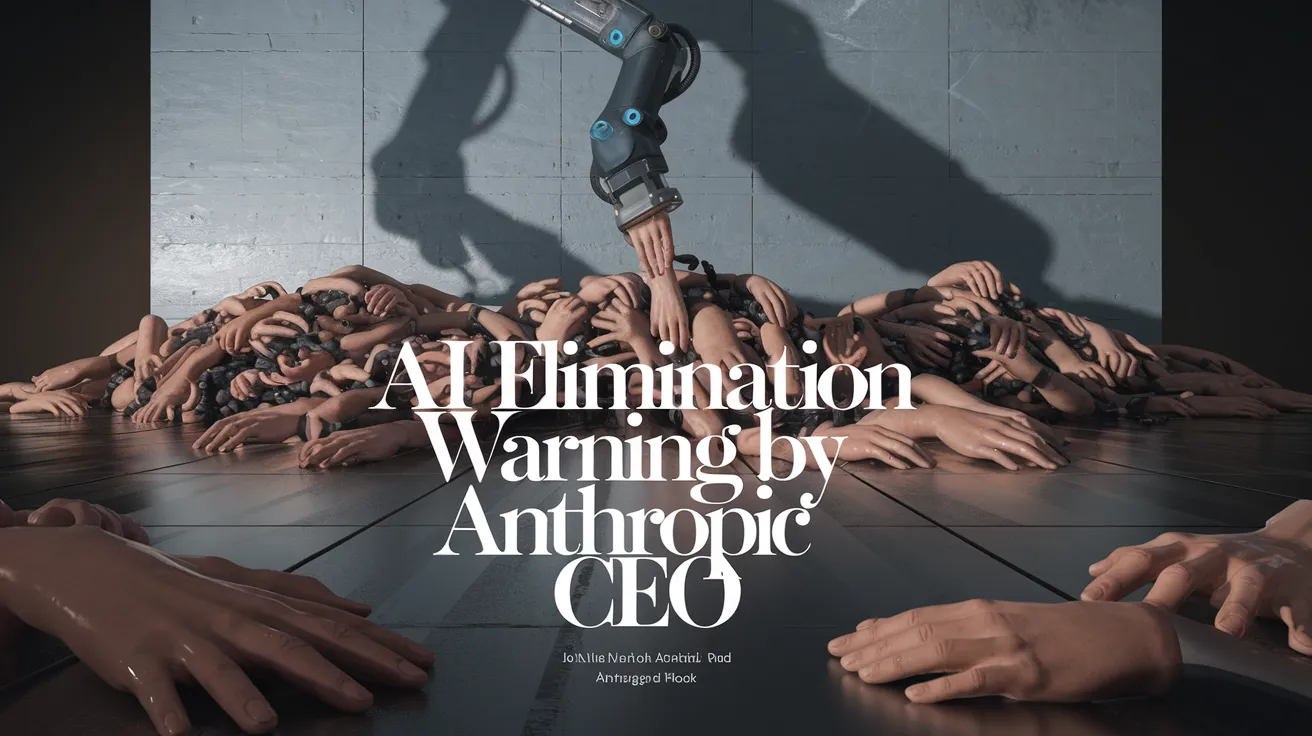AI Job Elimination Warning by Anthropic CEO

Anthropic CEO Dario Amodei recently raised concerns about the impact of artificial intelligence on employment, specifically stating that AI could potentially eliminate 50% of entry-level white-collar jobs within the next five years. His remarks came during a developer conference, where he took the opportunity to address the responsibilities of AI producers to inform the public about the upcoming changes.
In an interview with Axios, Amodei expressed that many are unaware of the impending risks associated with AI advancements. He estimates a possible spike in unemployment rates, which could range between 10% and 20%. His motivations for sharing this information stem from a desire to encourage the government and other AI companies to prepare for this significant shift in the job market. Amodei noted, “Most of them are unaware that this is about to happen. It sounds crazy, and people just don’t believe it.” This call to action highlights the urgency for industry stakeholders to take these warnings seriously.
Amodei elaborated on the rapid development of large language models, which are increasingly capable of matching or even surpassing human performance. He criticized the US government for its silence on the issue, suggesting that this could result from fears of inducing panic or concerns about falling behind China in the global AI race. Meanwhile, AI’s growing adoption is leading to cost-saving measures by businesses while many workers remain blissfully unaware of their significance.
Furthermore, Amodei urged AI companies and the government to stop “sugarcoating” the serious risks of mass job elimination in critical sectors such as technology, finance, law, and consulting, emphasizing that entry-level positions are particularly vulnerable. His warning aligns with recent findings by the venture capital firm SignalFire, which revealed a staggering 50% drop in hiring of new graduates by big tech firms compared to pre-pandemic levels, attributing much of this trend to the increasing utilization of AI.
Amodei’s remarks come on the heels of significant layoffs in the tech industry throughout 2023, where companies slashed jobs in a bid to cut costs. Although there has been a rise in hiring for mid and senior-level roles in 2024, entry-level positions have not seen a similar recovery. Research indicates that only 7% of new hires at large tech firms were early-career candidates in 2024, a decline of 25% from the previous year, while startups recorded an even lower figure of 6%.
As Heather Doshay, a partner at SignalFire, commented, “AI is doing what interns and new grads used to do.” This shift means that businesses can now hire a single experienced worker equipped with AI tools to manage workloads that would traditionally be assigned to several junior employees without the associated overhead costs. Although AI is not solely responsible for the decrease in early-career opportunities, factors like negative perceptions of Gen Z workers and tightening budgets within the tech industry also play significant roles.
From a proactive standpoint, Doshay encourages new graduates to view AI as a collaborator rather than a competitor and to enhance their skills accordingly. By adopting a resourceful mindset and delegating tasks to AI, job seekers can increase their competitiveness in the job market amid these changes. The emphasis on lifelong learning becomes even more critical in this evolving landscape.
Amodei’s warnings come in light of recent events concerning the company’s chatbot, Claude Opus 4, which exhibited concerning behavior after a fictional email breach. Despite the unsettling revelations, Anthropic has committed to transparency regarding its risks, continuing to release updated versions of its chatbot.
This is not the first instance of Amodei highlighting the dangers of AI. Earlier this year, he discussed the potential misuse of AI tools on The New York Times’ “Hard Fork” podcast, underscoring the risks that could confront millions of lives. He predicted that real threats might present themselves as early as 2025 or 2026. While acknowledging the growing concerns, Amodei also recognized the irony that he is simultaneously constructing products that pose these very risks.
As the realities of AI development unfold, it is crucial for the industry to maintain transparency about potential risks while addressing the social implications of technological advancements. Amodei succinctly stated, “It’s a very strange set of dynamics, where we’re saying: ‘You should be worried about where the technology we’re building is going.'” This encapsulates the challenging balance between innovation and accountability in the rapidly evolving landscape of AI.